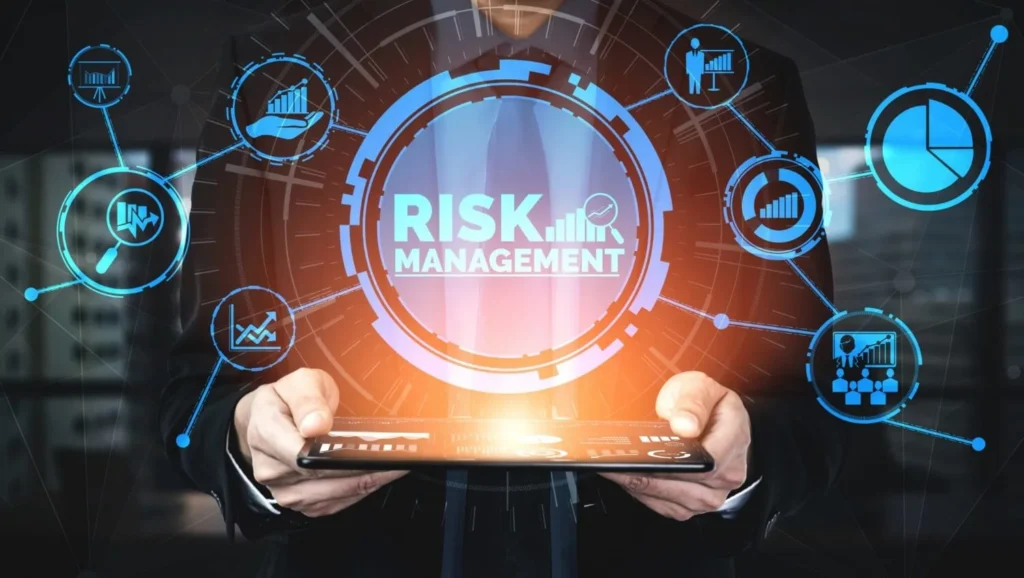
How AI is Improving Financial Risk Assessment and Fraud Detection
January 2, 2024
Financial Risk Assessment in the Age of AI
Artificial intelligence is revolutionizing how companies perform financial risk assessment. By leveraging massive amounts of data and advanced algorithms, AI is helping organizations more accurately identify risks and detect fraud across various areas of finance.
In lending, AI and machine learning are improving financial risk assessment capabilities in significant ways. Lenders have traditionally relied on credit scores and income-to-debt ratios to evaluate borrowers.

Content
However, AI allows them to analyze thousands of additional data points that provide deeper insights into a customer’s ability and willingness to repay a loan. By training algorithms on past loan performance data, AI models can uncover hard-to-detect patterns and subtle risk factors that human underwriters may miss.
This helps lenders more precisely determine who is likely to default versus who is a safe bet. As a result, AI-powered financial risk assessment is enabling more people access to affordable credit while also minimizing losses from risky loans.
Insurance is another domain where AI is enhancing financial risk assessment. Insurers use complex models to predict the likelihood and cost of future claims when determining premium rates. AI amplifies these efforts by crunching massive troves of structured and unstructured data, like medical records, driving habits, and property details.
This expanded dataset allows AI models to develop a richer, multidimensional understanding of risk that considers factors human analysts may overlook. Insurers are leveraging these advanced AI-driven financial risk assessment capabilities to more accurately price policies, better identify fraudsters, and offer customized products tailored to individual risk profiles.
AI is also streamlining financial risk assessment for investment managers. Robo-advisors use algorithms to analyze securities filings, economic indicators, news articles, and social media for clues about a company’s financial health and growth prospects. This AI-powered analysis supplements and scales traditional fundamental research. It helps investment firms more objectively evaluate opportunities and threats across their portfolios in a timely, cost-effective manner. The result is improved risk-adjusted returns and stronger downside protection for investors.
Detecting Financial Fraud
Another major application of AI in finance is detecting and preventing fraud. According to a report from bestpromptaihub.com, a site dedicated to offering users ChatGPT prompts, financial institutions lose over billions annually to fraudulent activities. AI counteracts this problem by scouring transactions for anomalous patterns that could indicate money laundering, identity theft, or other deception.
For example, AI models study past confirmed fraud cases to learn the subtle tactics scammers employ. They then use this knowledge to continuously monitor customer behaviors and flag suspicious anomalies in real-time for manual review. This AI-powered approach is far more scalable and effective than rule-based anti-fraud systems of the past. As a result, financial institutions are catching many more fraudsters while approving a higher percentage of legitimate users.
Managing Risk Across Sectors
Beyond specific domains, AI is helping organizations holistically manage financial risk at the portfolio level. Investment managers leverage AI to simulate “what if” scenarios and stress test holdings against black swan events. Insurers use AI to model interdependencies between different risk factors and better diversify their underwriting exposure. Even governments and central banks are applying AI to macroeconomic forecasting and monitoring systemic financial risks at a national scale.
The future of financial risk assessment is undoubtedly AI-driven. As more data flows in and algorithms become smarter, AI will continue refining its understanding of risk to unprecedented precision. Organizations that fully leverage these advanced AI capabilities will gain significant competitive advantages in both risk management and growth opportunities. Meanwhile, consumers will enjoy improved access to tailored financial products and protections tailored to their unique needs and circumstances. In the coming years, AI is poised to transform nearly every aspect of assessing and mitigating financial risk.
FAQs
How secure is financial data and personal information when used to train AI models?
Leading AI companies take extensive precautions to ensure data privacy and security. Sensitive financial records are anonymized before training to prevent any individual from being identifiable. Strict access controls and encryption also protect data in use, storage, and transit. Still, data protection will remain an ongoing priority as AI adoption grows.
What types of jobs might be displaced by AI in financial risk assessment?
While AI will automate some routine tasks, it is more likely to augment rather than replace many finance roles over the long run. Jobs that could see reductions include basic underwriting and data entry positions. However, there will still be demand for skilled professionals to develop AI strategies, validate results, manage client relationships, and address complex, non-standard risks beyond the scope of current AI capabilities. Overall workforce needs are expected to shift rather than decline as new technical and advisory jobs emerge alongside AI.

Darin is a wonderful person. He is very nice and always willing to help out! He loves his job because it lets him share interesting things with people who want to know about new developments in the world of technology.

















